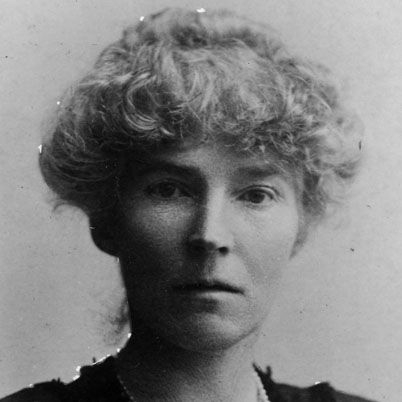You are viewing the article Gertrude Bell at Tnhelearning.edu.vn you can quickly access the necessary information in the table of contents of the article below.

(1868-1926)
Who Was Gertrude Bell?
Gertrude Bell studied history at Oxford and embarked on a career as a writer, traveler and archaeologist. Fluent in Persian and Arabic, Bell worked for the British government in Cairo during World War I. She contributed to the construction of the Iraqi state in 1921, as well as the National Museum of Iraq.
Early Life
Gertrude Margaret Lowthian Bell was born on July 14, 1868, in Durham, England. Her grandfather, Sir Isaac Lowthian Bell, was a member of Parliament who worked alongside Prime Minister Benjamin Disraeli. She grew up in a wealthy family in Redcar, a Yorkshire town, in a home built by her father, businessman and industrialist Sir Thomas Hugh Bell. Her mother Mary died in 1871 after giving birth to her younger brother Maurice. Bell gained her first exposure to politics and world affairs through her grandfather and his associates. Her father married again when Bell was still a young child and the union added a half-brother and two half-sisters to the family. Bell would go on to attend Oxford University, where she studied history.
In 1892, Bell graduated with honors from Oxford and shortly thereafter traveled to Tehran, Iran, where her uncle, Sir Frank Lascelles, was serving as British minister. This trip sparked her interest in the Middle East, the region on which she would focus much of her energy for the remainder of her life.
Early Writings and Political Career
In 1899, Bell returned to the Middle East and visited Palestine and Syria, touching off a period of sustained travel there and in Asia and Europe. Her writings on her experiences across the globe informed British audiences about the distant parts of their empire. Bell’s works published during the two decades preceding World War I include Safar Nameh (1894), Poems from the Divan of Hafiz (1897), The Desert and the Sown (1907), The Thousand and One Churches (1909) and Amurath to Amurath (1911). Bell also maintained a vast correspondence during this period, which was eventually compiled and published in 1927.
During World War I, Bell worked for the Red Cross in France before joining the British intelligence unit in Cairo, Egypt, known as the Arab Bureau. There, she collaborated with famed British traveler T. E. Lawrence to try to forge alliances with Arab tribes. Her writings about her experiences in the Middle East — particularly in Iraq — continue to be studied and referenced by policy experts in the 21st century.
British forces eventually captured Baghdad in 1917. Subsequently, Bell became involved in the political reinvention of Mesopotamia, where she helped colonial authorities install ruler Faisal I as monarch of Iraq. Fluent in Arabic and Persian, Bell assisted British diplomats and local rulers in the construction of a stable government infrastructure. She was the only woman present at the 1921 Conference in Cairo, convened by Winston Churchill to determine the boundaries of the Iraqi state.
Despite her own political achievements, Bell actively opposed women’s suffrage in Britain. She argued that the vast majority of her contemporaries lacked the education and knowledge of the world necessary to participate meaningfully in political debate.
Later Life
Bell remained in Baghdad after Faisal’s 1921 ascension, working to fund and construct an archaeological museum. She pioneered the idea of retaining antiquities in their country of origin rather than transporting them to European centers of learning. The result of Bell’s efforts was the National Museum of Iraq, which holds one of the world’s greatest collections of Mesopotamian antiquities. The museum collections were damaged in the aftermath of the 2003 invasion of Iraq by the United States.
Death
After taking a fatal dose of sleeping pills, Bell died on July 12, 1926, in Baghdad. Her death has been interpreted as a suicide, given her persistent health problems and the recent death of her brother. She is buried in a British cemetery in Baghdad.
Movie
In 2012, directors Ridley Scott and Werner Herzog were both planning feature films based on Bell’s life. Scott’s project eventually foundered, but Herzog’s biopic, Queen of the Desert, which stars Nicole Kidman as Bell, Robert Pattinson as Lawrence and James Franco as a colleague of Bell’s, premiered at the Berlin International Film Festival in February 2015.
QUICK FACTS
- Name: Gertrude Bell
- Birth Year: 1868
- Birth date: July 14, 1868
- Birth City: Durham
- Birth Country: England
- Gender: Female
- Best Known For: Gertrude Bell was a British writer, archaeologist and political officer best known for helping to establish modern Iraq after World War I.
- Astrological Sign: Cancer
- Schools
- Oxford University
- Death Year: 1926
- Death date: July 12, 1926
- Death City: Baghdad
- Death Country: Iraq
Fact Check
We strive for accuracy and fairness.If you see something that doesn’t look right,contact us!
CITATION INFORMATION
- Article Title: Gertrude Bell Biography
- Author: Biography.com Editors
- Website Name: The Biography.com website
- Url: https://www.biography.com/authors-writers/gertrude-bell
- Access Date:
- Publisher: A&E; Television Networks
- Last Updated: June 9, 2020
- Original Published Date: April 2, 2014
Thank you for reading this post Gertrude Bell at Tnhelearning.edu.vn You can comment, see more related articles below and hope to help you with interesting information.
Related Search:



